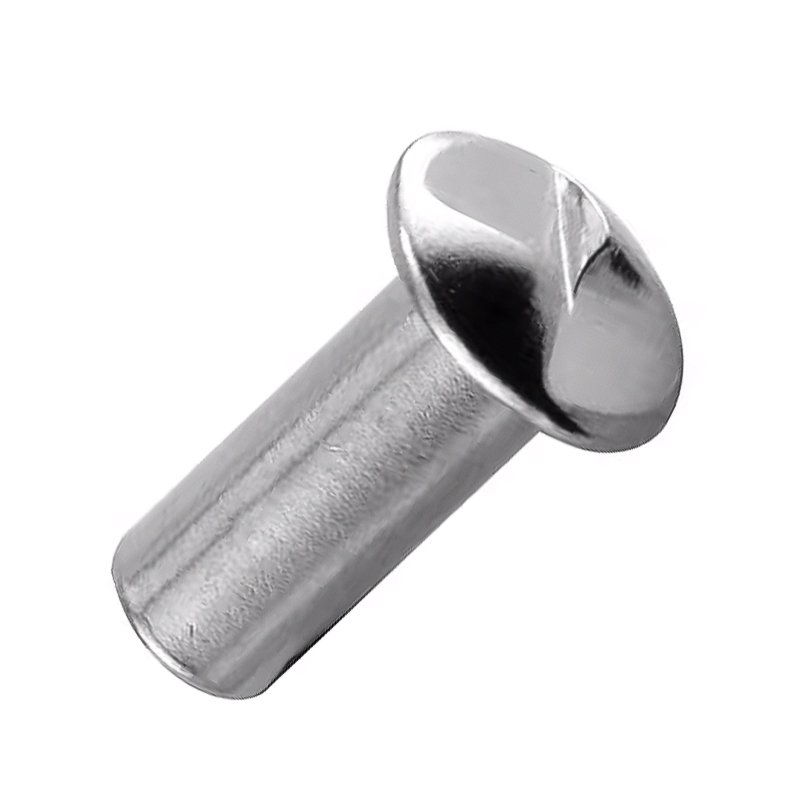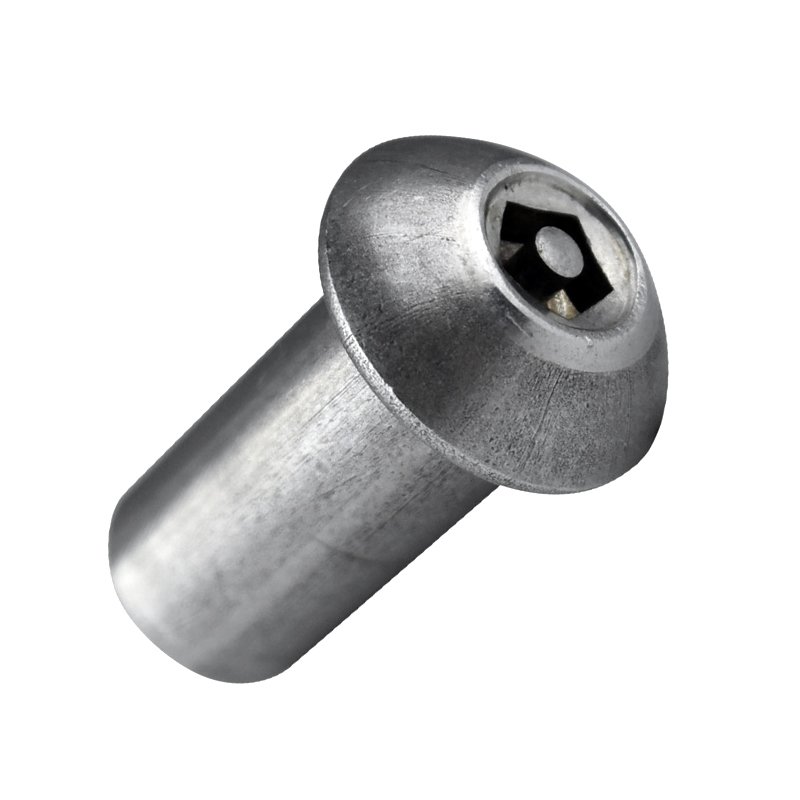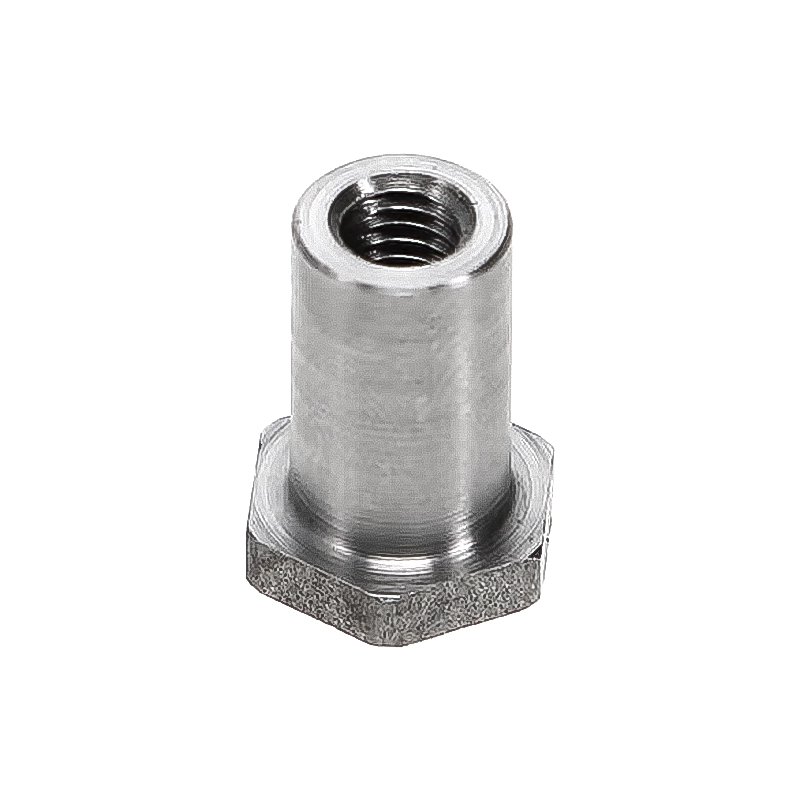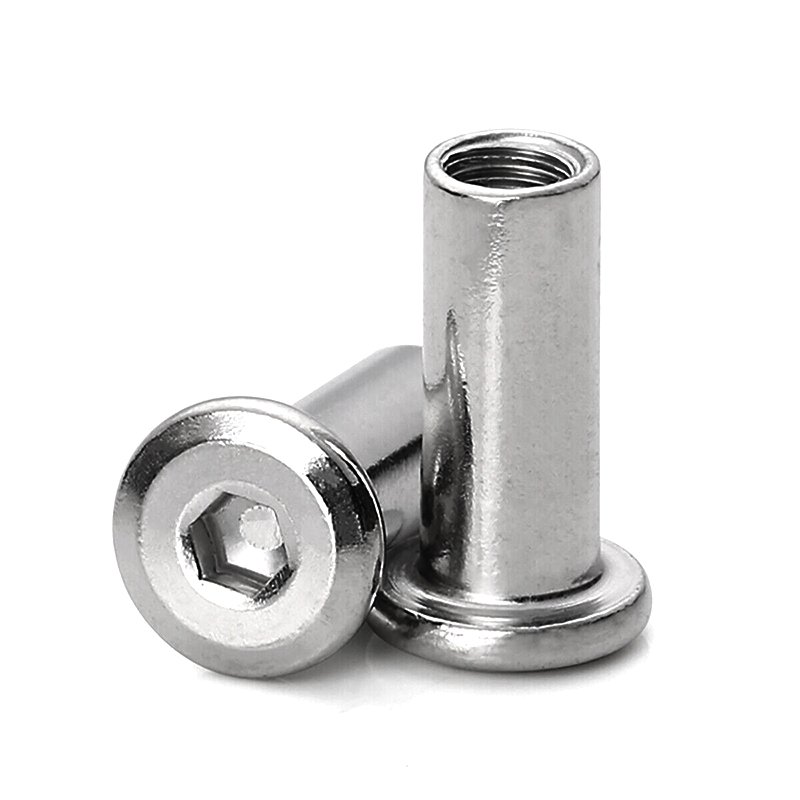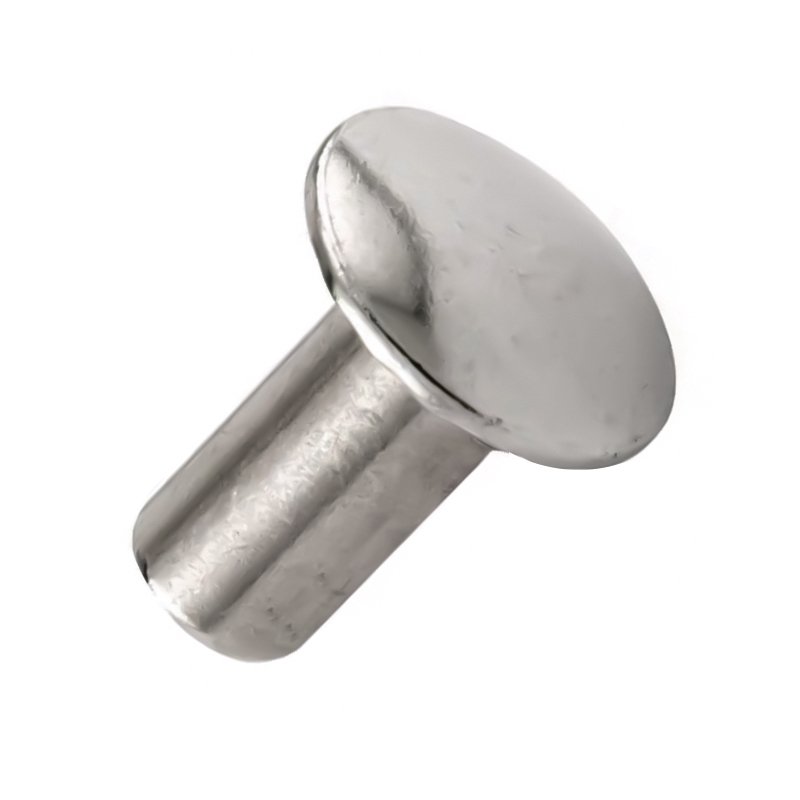
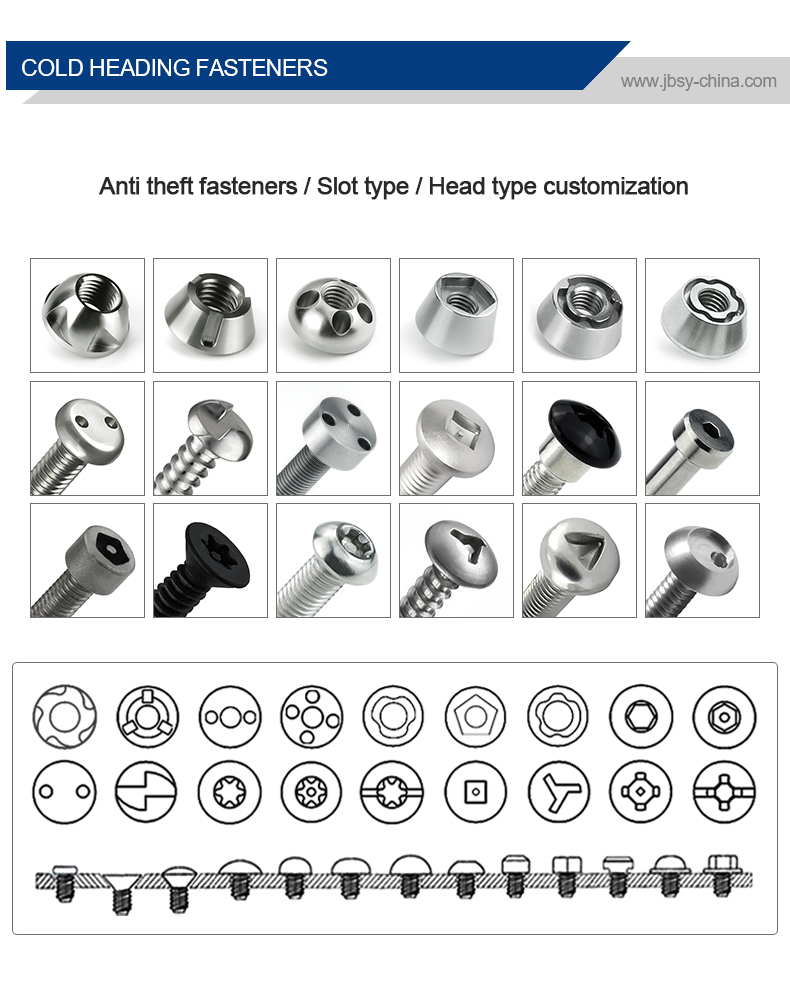
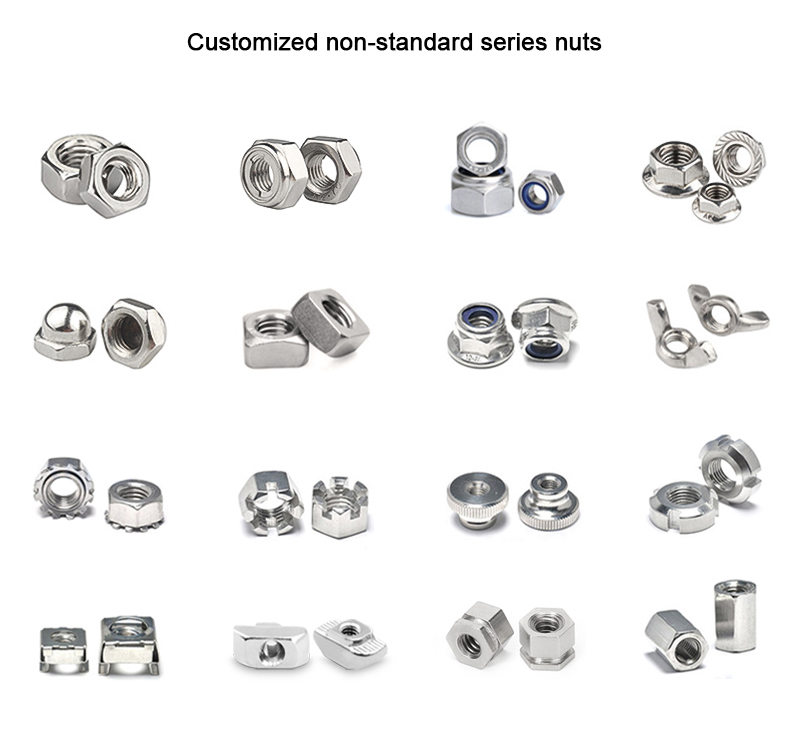
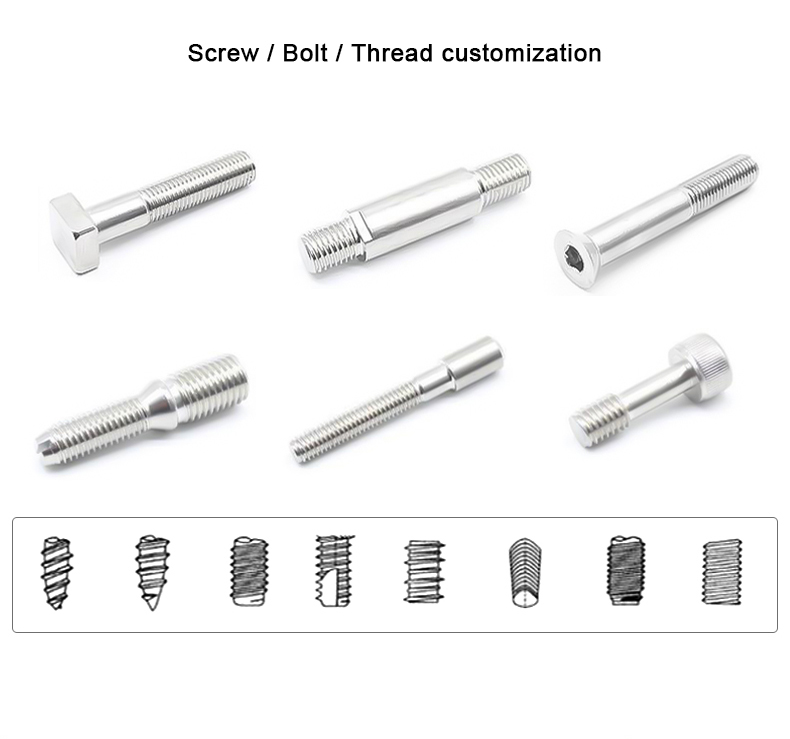
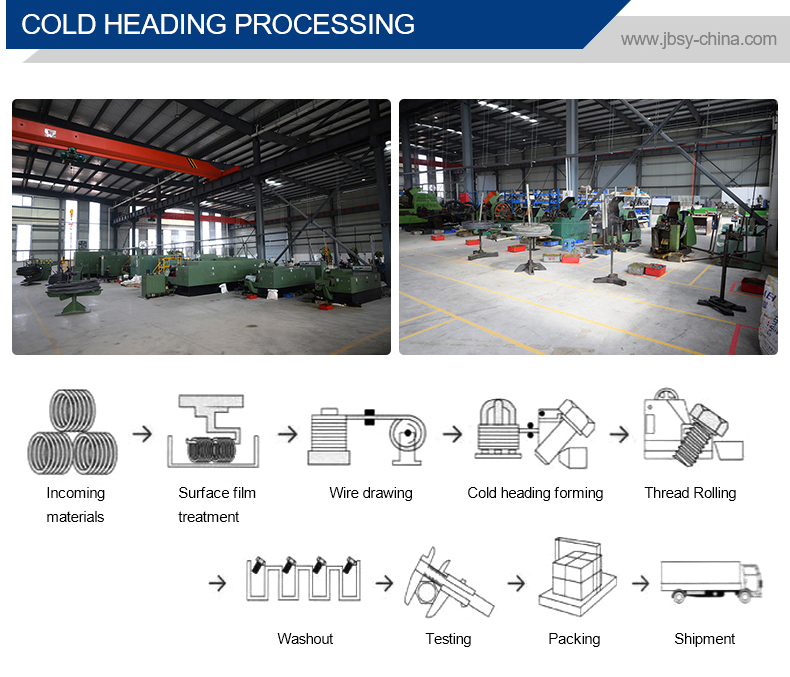
O processo de encabeçamento a frio é um dos novos processos para a maquinagem sob pressão com menos ou nenhum corte
metal. É um método de processamento que utiliza a deformação plástica do metal sob a ação de
forças externas e, com a ajuda de moldes, redistribui e transfere o volume de metal para formar
as peças ou os espaços em branco necessários. O processo de encabeçamento a frio é o mais adequado para a produção de
elementos de fixação, tais como cavilhas, parafusos, porcas, rebites, cavilhas, etc.

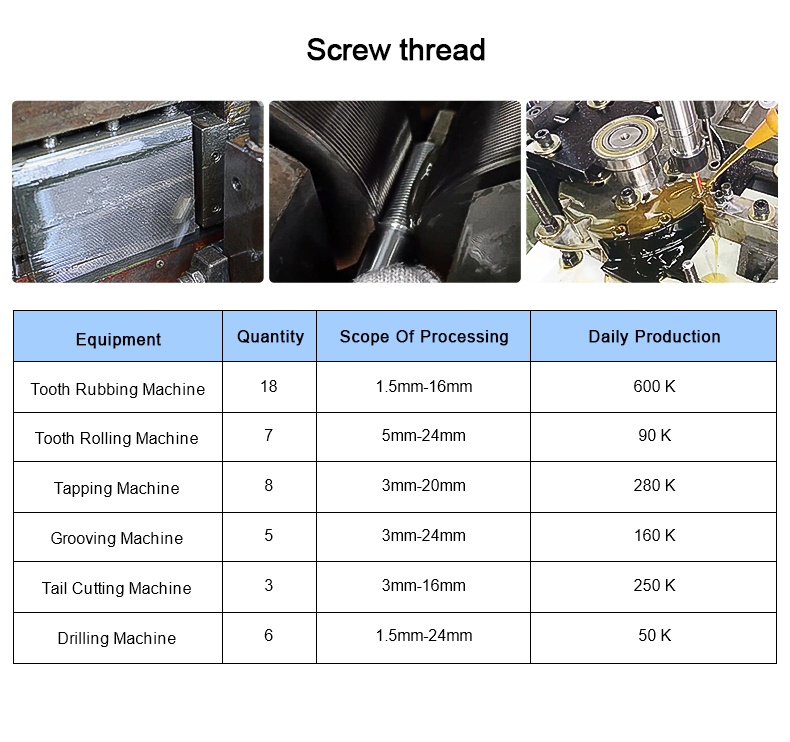
A unidirecional porca de barril, também conhecido como porca do tambor da embraiagem unidirecional ou porca de barril anti-rotaçãoé um fixador especializado concebido para permitir o aperto numa direção e evitar o afrouxamento devido a vibração ou rotação na direção oposta.
Caraterísticas principais:
-
Forma de barril - Desenho cilíndrico com rosca interna ou externa, semelhante a um barril.
-
Porca de barril unidirecional
-
Mecanismo unidirecional - Contém uma caraterística de bloqueio (como um sistema de embraiagem, came ou roquete) que permite a rotação no sentido do aperto mas resiste à contra-rotação.
-
Resistência à vibração - Evita o auto-afrouxamento em ambientes de elevada vibração (por exemplo, automóvel, aeroespacial, maquinaria).
-
Material - Normalmente fabricados em aço endurecido, aço inoxidável ou outras ligas de alta resistência para maior durabilidade.
-
Instalação - Requer um binário ou ferramenta específica (por exemplo, chave inglesa, soquete) para a instalação; algumas versões podem ser apertadas à mão.
Aplicações comuns:
-
Indústria automóvel e aeroespacial - Fixação de componentes críticos sujeitos a vibrações.
-
Máquinas industriais - Fixação de peças rotativas em que existe o risco de recuo.
-
Eletrónica de consumo - Evitar que os parafusos se soltem nos aparelhos.
-
Bicicletas e equipamento desportivo - Utilizado em montagens dinâmicas e de alta tensão.
Este tipo de porca é ideal para aplicações em que as anilhas de bloqueio tradicionais ou os adesivos de bloqueio de roscas podem não oferecer resistência suficiente ao afrouxamento induzido por vibrações.
